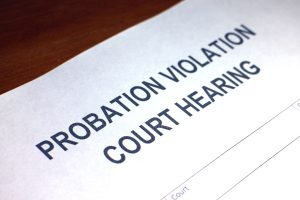As we’re living in a digital age, text messages and social media posts have become central to domestic violence prosecutions. These forms of communication are commonly used to corroborate allegations, establish intent, or prove a pattern of behavior. This digital paper trail can be scrutinized and used against you in court – and they come up a lot especially in Fort Lauderdale domestic violence cases. 
If you’re facing domestic violence charges in Broward County, understanding how digital communications are handled as evidence can be important to building an effective defense – and potentially keeping you out of trouble in the future.
The Role of Digital Evidence in Domestic Violence Cases
Text messages, emails, and social media interactions are increasingly relied upon in Florida domestic violence cases to support allegations of abuse, harassment, or threats. These communications can be used in various ways, such as:
- Establishing Intent or Threats. A text message threatening harm can be used to demonstrate the accused’s intent.
- Documenting Patterns of Behavior. Repeated texts or social media messages can be presented as evidence of harassment or stalking.
- Corroborating Testimony. Digital evidence can back up a complainant’s version of events, especially when physical evidence is limited.
While this evidence can seem to create open-and-shut cases, the truth is it’s not always as straightforward as prosecutors may suggest. As experienced Broward criminal defense lawyers can explain, messages can easily be taken out of context, manipulated, or misinterpreted – especially given that slang terms are now evolving at a faster rate than ever (thanks in large part to social media). All of this opens the door for a skilled defense attorney to challenge their validity.
Legal Standards for Admissibility
To be used as evidence in a Broward criminal case, digital communications must meet specific legal standards for admissibility:
- Authentication.
Under the rules of evidence, prosecutors must authenticate digital messages by proving they originated from the accused. The Florida Supreme Court has repeatedly emphasized the need for reliable evidence to establish the authenticity of electronic communication. Text messages may be admitted as evidence, but if they lack proper authentication, they may be excluded. - Relevance.
Messages must be directly relevant to the charges at hand. Courts often weigh whether the probative value of the evidence outweighs its potential for unfair prejudice. - Integrity.
The integrity of the evidence must be preserved. Altered or incomplete messages can be excluded as inadmissible.
Common Defenses Against Digital Evidence
An experienced Fort Lauderdale criminal defense attorney can use several strategies to challenge the admissibility or interpretation of digital evidence: Continue reading
 Fort Lauderdale Criminal Attorney Blog
Fort Lauderdale Criminal Attorney Blog










